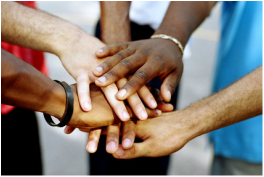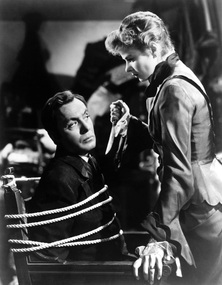
Many years ago I attended a writers seminar on characterization, and one of the speakers was a fireman. He told us about his training at the academy and life at the firehouse. He shared some of his experiences providing emergency care and fighting fires. But his comment that has really stuck with me over the years was, "When we arrive on scene, whatever the situation is, things should get better." That was his goal.
He was, of course, talking about controlling a threatening blaze and tending to the injured, but I thought, what a worthy intention. What if every one of us subscribed to it? What if when we arrived "on scene," whether it was a meeting at work, or dealing with a surly sales clerk, or simply walking through the door at the end of a long day, all of us looked around and asked, "How can I make this better?"
Case in point: A few years ago, I was standing in a very long line at the post office. The man in front of me was sighing and grumbling. Curious, I asked if he was in a hurry. He looked surprised at my question (or perhaps that I was even talking to him), but answered, "No, I just don't like wasting my time standing in long lines." Now, I was thinking to myself, this guy is probably unhappy no matter where he's standing, but I started up a conversion and by the time we got to the front of the line, I realized the time had passed pretty darned fast. And he didn't seem so grumpy any more. (You're welcome, postal worker who had to wait on him.)
Confession--not quite on point: Sometimes when I'm standing in long lines, I fantasize about everyone chatting amicably or someone (not me, praise the Lord) breaking out in song to entertain us. It just seems so weird that we're of the same species, standing in close proximity, and no one is saying a word to each other. (Hey, what can I say, fantasies can help pass the time, too.)
There are a million ways to make a situation better. Telling someone you like their nail polish--like someone told me today--or holding the door for the person behind you, or really listening to what someone has to say. So many people just want to be noticed. It's a big, loud, distracting world out there, and sometimes we forget that we, one on one, have the power to make it better.
He was, of course, talking about controlling a threatening blaze and tending to the injured, but I thought, what a worthy intention. What if every one of us subscribed to it? What if when we arrived "on scene," whether it was a meeting at work, or dealing with a surly sales clerk, or simply walking through the door at the end of a long day, all of us looked around and asked, "How can I make this better?"
Case in point: A few years ago, I was standing in a very long line at the post office. The man in front of me was sighing and grumbling. Curious, I asked if he was in a hurry. He looked surprised at my question (or perhaps that I was even talking to him), but answered, "No, I just don't like wasting my time standing in long lines." Now, I was thinking to myself, this guy is probably unhappy no matter where he's standing, but I started up a conversion and by the time we got to the front of the line, I realized the time had passed pretty darned fast. And he didn't seem so grumpy any more. (You're welcome, postal worker who had to wait on him.)
Confession--not quite on point: Sometimes when I'm standing in long lines, I fantasize about everyone chatting amicably or someone (not me, praise the Lord) breaking out in song to entertain us. It just seems so weird that we're of the same species, standing in close proximity, and no one is saying a word to each other. (Hey, what can I say, fantasies can help pass the time, too.)
There are a million ways to make a situation better. Telling someone you like their nail polish--like someone told me today--or holding the door for the person behind you, or really listening to what someone has to say. So many people just want to be noticed. It's a big, loud, distracting world out there, and sometimes we forget that we, one on one, have the power to make it better.



 RSS Feed
RSS Feed
